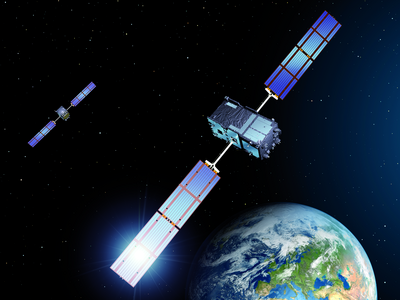People have become more and more dependent on accurately locating their place for everything - from finding bars or pharmacies, locating the shortest road route as well as locating parked cars or, God forbid, lost Alzheimer's patients

After 17 years and many setbacks caused by budget cuts, the European Galileo navigation satellite array began operating last Thursday, with the promise of better location services than ever. On Thursday, four satellites - Galileo 15-18 - were launched from French Guinea to ensure reasonable coverage.
Initial services, free of charge to users worldwide, will only be available on smartphones and navigation units already equipped with Galileo-compatible chips. Certain devices may require a software update to start using the service, according to the European Commission, which is funding the project.
"Galileo will increase the accuracy of geo-localization by 10 times" says the vice president of the European Commission Marus Sepkovic before the launch. People have become more and more dependent on accurately locating their place for everything - from finding bars or pharmacies, locating the shortest road route as well as locating parked cars or, God forbid, lost Alzheimer's patients.
So far, Europe has uploaded 18 satellites to the Galileo array, so Galileo's signal will be dim at first. With 18 satellites in orbit so far, Galileo's signal will be somewhat dim at first, and users will also be connected to the US GPS system. But Galileo will become more and more independent when satellites are added to the network flying at an altitude of 23,222 km above the Earth.
The European Space Agency says that Galileo will be fully operational in 2020 and will provide time and position data with unprecedented accuracy. Galileo's free service can pinpoint a location within a meter versus several meters on GPS and Russia's GLONASS array of navigation satellites. Those who purchase a paid service will be able to receive more accurate data, up to a distance of centimeters. This accuracy will be invaluable for driverless cars and will allow for increased safety of nuclear power plants.
When Galileo is operational, the time needed to identify a person lost at sea or in the mountains will decrease from three hours to ten minutes after activating the distress signal. The signal will also work in areas where the GPS system does not currently work - inside tunnels and in places where tall buildings hide the radio waves from satellites flying low on the horizon. Civilian control over the service is also of great strategic importance to Europe, which relies on two military services - GPS and GLONASS which do not provide a guarantee of uninterrupted service.
The Galileo program, named after the famous Italian astronomer Galileo Galilei, was first approved with an initial budget of three million euros and was supposed to be operational in 2008. It has suffered several technical and budgetary setbacks, including the launch of two satellites into the wrong orbit in 2014. Its total cost until 2020 is estimated Now at about 10 billion euros.
The European Commission predicts that the project will eventually be an important commercial enterprise, and it will add about 90 billion euros to the economy of the European Union in the first 20 years of its existence. Almost 10 percent of Europe's gross domestic product today depends on navigation satellites and this rate is expected to grow to about 30 percent in 2030.
The groundbreaking accuracy of the system is the result of the best atomic clocks ever installed on navigation satellites - which are accurate to one second every three million years. Eventually, Galileo will have more satellites than GPS and GLONASS as well as good signals that will carry more information.

2 תגובות
The use is already possible for anyone who owns a smartphone with the latest Qualcomm Snapdragon chips. The level of accuracy is unprecedented, it's a different user experience.
If I want to buy a compatible phone, what is the name of the standard that supports them?